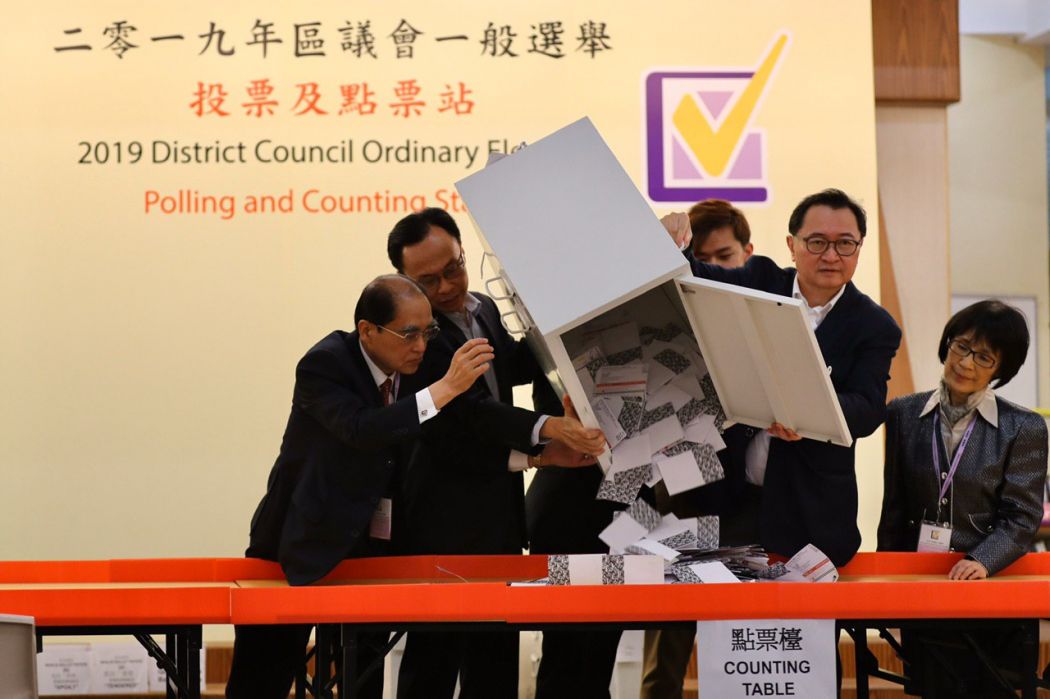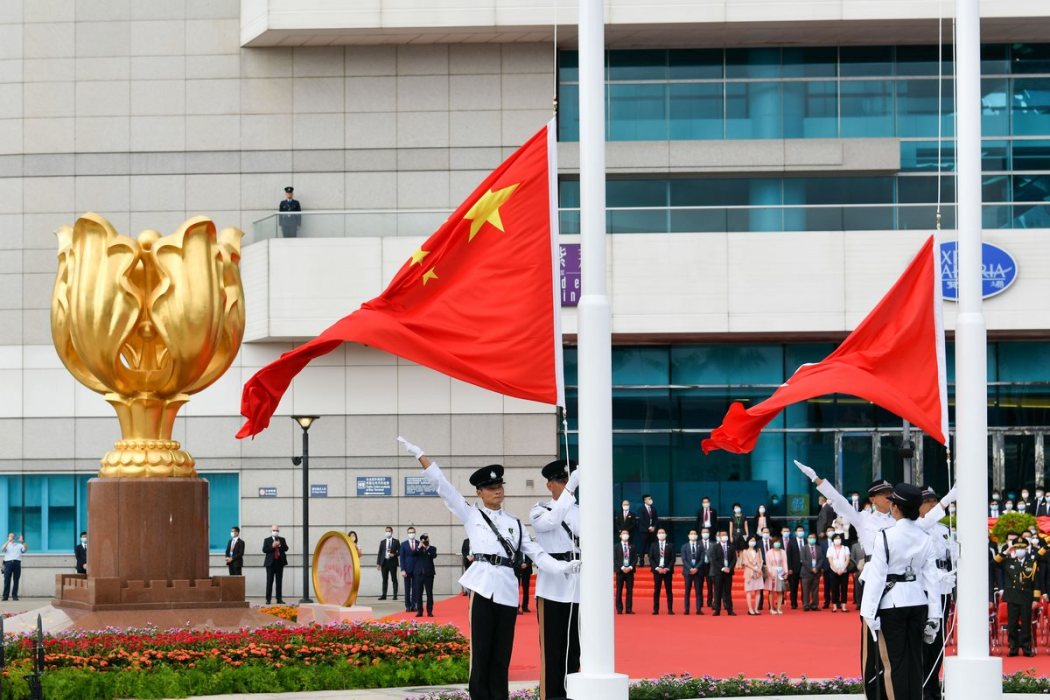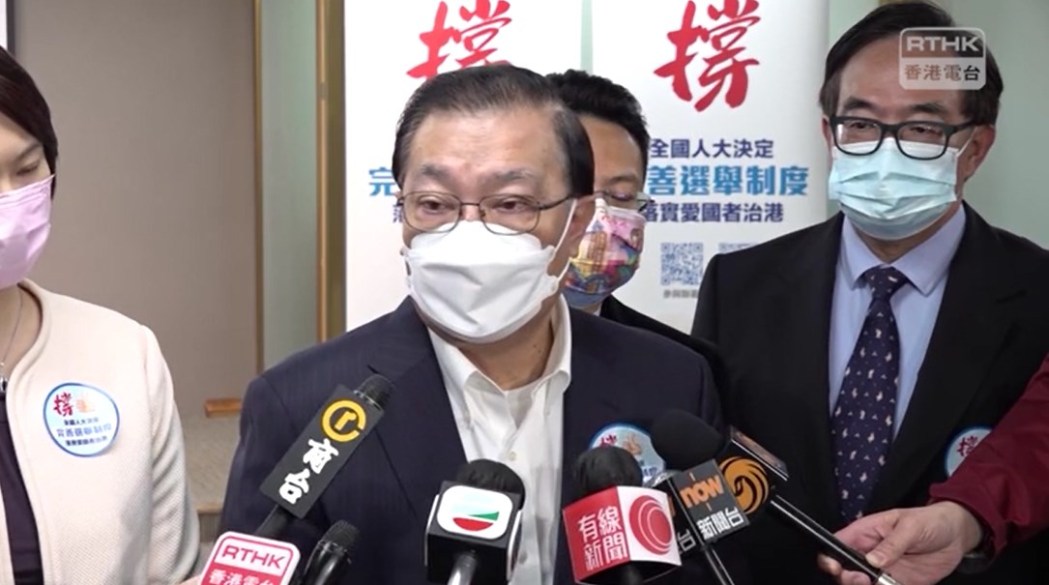Let us now consider an interesting mystery. What are the powers and functions of the newly minted official post, the Chief Convener of the Election Committee?
This is an interesting question, firstly because the old election committee seems to have managed without a convener, so it seems some new service will be provided, if we can find out what it is. Secondly the clarifications provided by different people have been flatly contradictory.

Here is what the new law says:
There shall be a system of conveners for the Election Committee. The conveners shall be responsible for convening meetings of the Election Committee as necessary and handle relevant matters. A chief convener shall be an Election Committee member who holds an office of state leadership. The chief convener shall designate a number of conveners for each sector of the Election Committee.
Got that? The Chief Convener seems to have two functions: to convene meetings of the Election Committee and to choose sub-conveners for each sector. That’s straightforward enough, even if it leaves the conveners without much to do. Presumably the actual dispatch of summonses to action will be done by civil servants, as it is now. What would be the “relevant matters” to be handled?

Well here is Carrie Lam, answering a question on the topic in her press conference to launch the new system:
“The convener has been specified in Annex 1 …I want to assure you that this is a clause for use under very, very exceptional and rare situations, and this convener system will only kick in during elections. During normal periods of governance, this convener system or the chief convener has absolutely no role in the governance of the Hong Kong SAR. It certainly will not have any influence over the Chief Executive or the Principal Officials.
“It is really under very exceptional circumstances during the course of an election that something that is totally unforeseeable has happened, that it needs a plan to tackle, then the Central Government may trigger this convener system.”
So, the convener has no role in the government of Hong Kong, but the system may be “triggered” by the Central Government if something unforeseeable happens in an election.

Now here is an interview with Tam Yiu-chung published in the Standard:
The new role of chief convener of the Election Committee will be in a superior position to the city’s chief executive and will represent Beijing, says Hong Kong’s sole delegate to the National People’s Congress Standing Committee, Tam Yiu-chung.
Speaking on a radio programme yesterday, Tam said the chief convener can call a meeting when there are election-related issues that cannot be resolved by law so it does not need the NPCSC to weigh in.
‘This is a gate-keeping mechanism so the chief convener should be superior than the chief executive,’ he said. ‘It means the person represents the central government at a certain level.’
So according to Mr Tam, the Chief Convener outranks the Chief Executive (who thinks he will “certainly have no influence over the Chief Executive and senior officials”) and represents Beijing. This is not what it says in Annex 1.
And what’s with the Chief Convener “calling a meeting” when there are election-related issues which cannot be resolved by law, so it does not need the NPCSC to step in?”
The NPCSC is China’s legislature. In “unforeseen circumstances” it can change the law. The Election Committee is not a legislature and if a problem cannot be resolved by law there is surely nothing the Election Committee can do to change it.

Does Mr Tam think that the Chief Convener’s handling of relevant matters could include changing the law on elections?
It would also be nice to know how this “triggering” by the Central Government will take place. Presumably the Chief Convener will get the wheels turning off his own bat when he sees an election approaching. He doesn’t need to be triggered for such routine purposes.
Maybe I’m missing something here, but I do not see how this is going to work at all.
Is the idea that the Chief Convener, horrified by – say – a campaign to boycott an election, might by himself define such activity as criminal? Under the Basic Law that is a job for LegCo. Or is the idea that if the police vetting and the two committees which will assess the eligibility of candidates let someone through who is not acceptable to the imperial capital, the Chief Convener can intervene and himself ban the candidate? That would, I suppose, count as gate-keeping, but would be a bit controversial.
This is a worry because apparently the only relevant “office of state leadership” is vice chairman of the Chinese People’s Political Consultative Conference. That narrows the field down to two candidates, one of whom – Tung Chee-hwa – is getting a bit old for this stuff. So this exciting new job could easily go to Leung Chun-ying. Isn’t that a soothing thought!
Support HKFP | Policies & Ethics | Error/typo? | Contact Us | Newsletter | Transparency & Annual Report | Apps
Help safeguard press freedom & keep HKFP free for all readers by supporting our team
| HKFP is an impartial platform & does not necessarily share the views of opinion writers or advertisers. HKFP presents a diversity of views & regularly invites figures across the political spectrum to write for us. Press freedom is guaranteed under the Basic Law, security law, Bill of Rights and Chinese constitution. Opinion pieces aim to point out errors or defects in the government, law or policies, or aim to suggest ideas or alterations via legal means without an intention of hatred, discontent or hostility against the authorities or other communities. |

More HKFP OPINION:
HKFP has an impartial stance, transparent funding, and balanced coverage guided by an Ethics Code and Corrections Policy.
Support press freedom & help us surpass 1,000 monthly Patrons: 100% independent, governed by an ethics code & not-for-profit.










